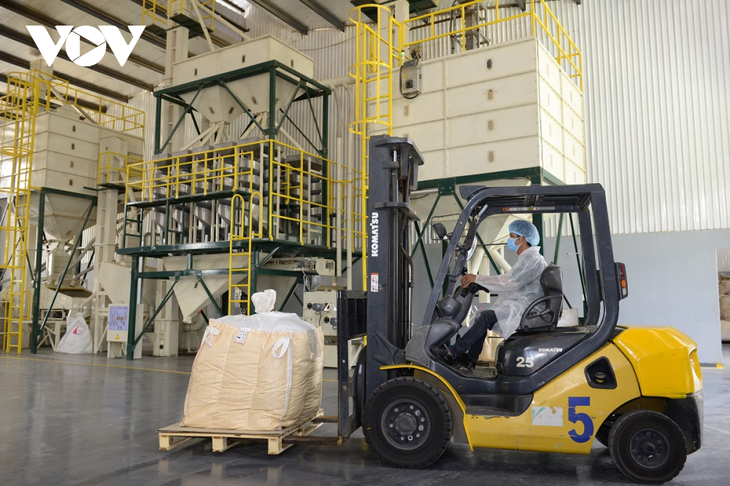(VOVWORLD) - A number of businesses in Ho Chi Minh City have to diversify export markets and seek alternative supply resources because of the armed conflict and many countries’ sanctions on Russia.
 Inside a warehouse of Phuc Sinh Group (photo: VOV) Inside a warehouse of Phuc Sinh Group (photo: VOV) |
Phuc Sinh Group exports coffee, pepper, and cashew nuts to Russia worth around 30 million USD annually. In the first two months of this year, its export volume doubled compared to the same period last year, earning 5 million USD. Since the crisis broke out, Phuc Sinh’s business has been affected by the bans on banks’ transactions with Russia.
Phan Minh Thong, Chairman of the Executive Board and General Director of Phuc Sinh Group, said: “Phuc Sinh exports to nearly 100 countries, in which Russia accounts for 5 to 8% of our total export volume. We have persuaded our customers in other countries to increase import of our products from 120% to 130%. So, our total export volume has not been much affected.”
Experts say that as prices of materials and fuel spike, businesses, particularly SMEs, should collaborate with each other in the supply chain. They should enhance technological application to improve product quality, reduce production costs, and increase value.
The Russia-Ukraine crisis and the West’s sanctions have led to shortages of wheat supply. It’s forecast that sanctions on Russia will remain for a long time. It’s time for Vietnamese businesses to increase export of agricultural products and food to Europe and seek alternative material suppliers to adapt to market fluctuations.